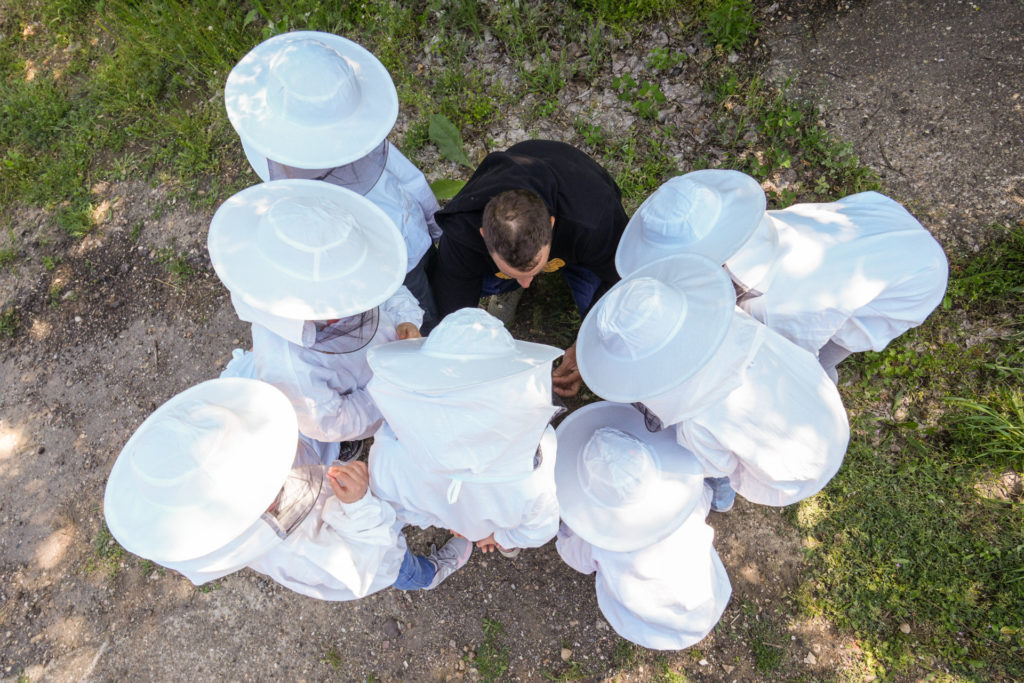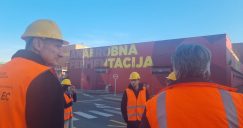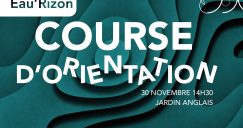Preschoolers Workshop at the Honey Garden in Belgrade as Part of LEVERS Project
Around 30 preschoolers from the Leptirić Kindergarten, a partner of the Center for the Promotion of Science (CPN) within the LEVERS project, recently enjoyed a sweet and educational field trip to the Honey Garden (Medonosni vrt) at Silosi in Belgrade.
Led by the Marešić brothers, creators of BeeCenter, the Honey Garden is a unique urban oasis nestled in the heart of the city of Belgrade, in Serbia. Developed in 2022 within the revitalized Silosi complex—once home to the Žitomlin factory—this lush space spans several thousand square meters and is home to over twenty beehives and countless nectar-rich plants. It is here that some of Belgrade’s highest-quality urban honey is produced.
During the visit on April 29, the children participated in an interactive workshop designed to introduce them to the world of honeybees and other pollinators. Through hands-on activities and direct contact with nature, they learned about the vital role of bees in pollination, how bees live and work, and how to safely behave around bees and other insects. The children explored the inner workings of a beehive, learning how bees communicate, organize themselves into roles—from queen to worker to drone—and collaborate in complex, efficient ways to sustain the colony. They also discovered how bees produce honey, but also beeswax, propolis, royal jelly, and pollen, each of which plays a unique role in the hive and has value for humans. These lessons offered children a rare insight into the interconnectedness and intelligence of the natural world, highlighting how the wellbeing of even the smallest creatures—like bees—is deeply linked to the health of entire ecosystems, food systems, and ultimately, to broader issues of climate justice and environmental equity.
One of the highlights of the visit was tasting different varieties of honey and bee products, including the renowned Belgrade honey made by the MadMed local brand. “Belgrade honey is truly exceptional,” said one of the workshop leaders, the founder of MadMed . “Bees gather nectar from a diverse range of urban flora within a 2-kilometer radius of the Honey Garden, including the Botanical Garden, all of Dorćol, Kalemegdan, the Danube’s left bank, and countless balconies and urban gardens. The result is a rich, polyfloral honey with complex flavors.” Children were also amazed to learn that bees naturally filter out impurities through their biology, making even urban honey crystal clear and safe. Each child also received a special honey-themed gift pack to take home, featuring different types of honey and locally made honey cookies, thanks to MadMed.
The goal of the workshop was not only to teach children about bees but also to foster awareness of urban pollinators and the ecosystems they support, in the wider concept of climate justice. This experiential approach to learning—central to the mission of the LEVERS project—encourages young minds to develop a deeper connection with nature while also engaging with broader ideas such as environmental sustainability, food security, and climate justice. By understanding the importance of pollinators in maintaining biodiversity and the global food chain, children are empowered to see themselves as future stewards of a more just and resilient planet.
By partnering with local initiatives such as BeeCenter and industry stakeholders such as MadMed, the LEVERS project demonstrates the power of collective engagement in promoting environmental education and sustainability in cities.







